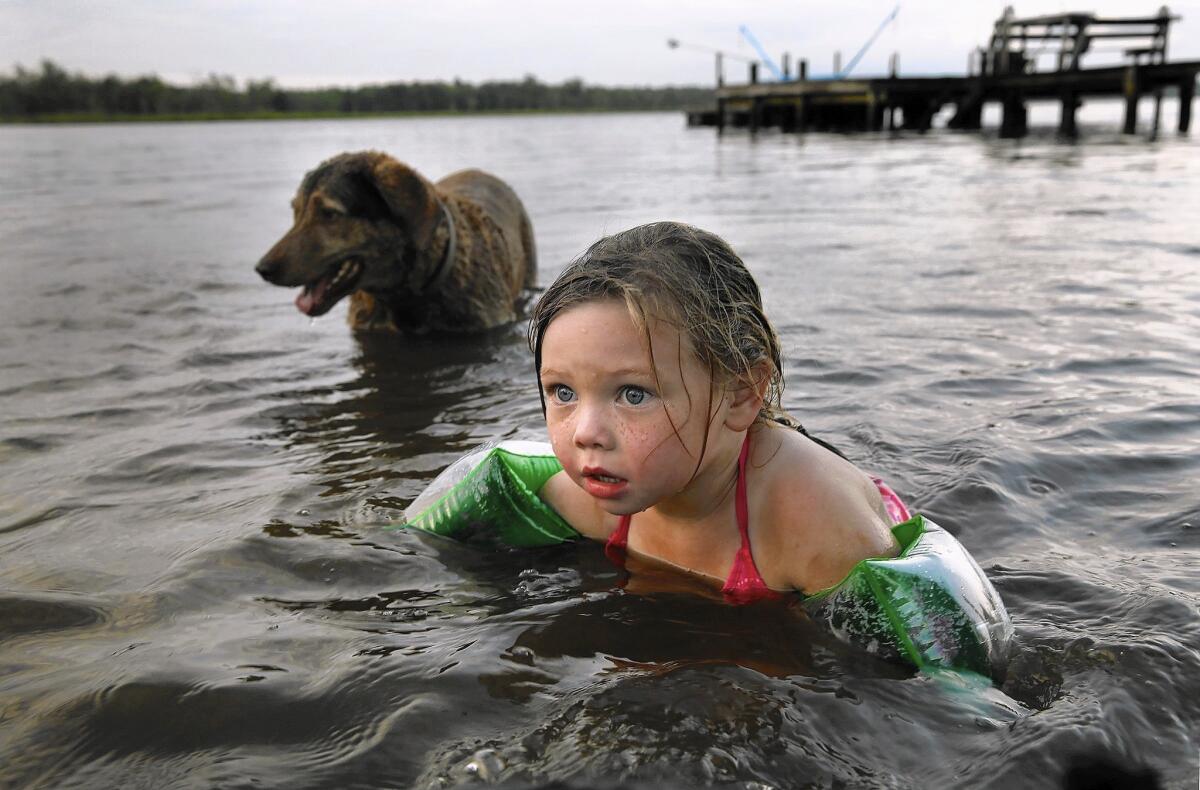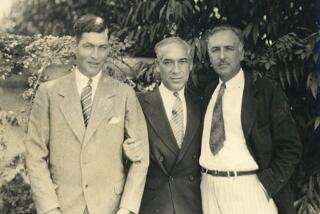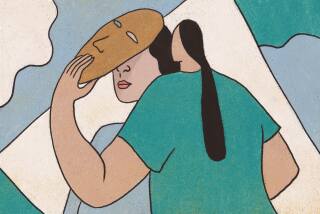Pocahontas’ tribe, the Pamunkey of Virginia, finally recognized by U.S.

The tidal river that surrounds this spit of scrubby land has long functioned like a moat that rises and falls through the day.
A single road connects the reservation’s sycamore, poplars and modest houses with miles of cornfields that separate the tribe from large retail stores and suburban office parks of eastern Virginia.
The Pamunkey have lived on and around these 1,200 acres for centuries, since before their most famous ancestor, Pocahontas, made contact with English colonists in 1607.
“We call this downtown Pamunkey,” said Kim Cook, the 50-year-old granddaughter of Chief Tecumseh Deerfoot Cook.
She smiled. The only noise came from birds chirping among the pines by the old fishing shanties. The only action came when a cousin stopped by to relieve Cook’s 8-year-old son, River Ottigney Cook, of his boredom by taking him on a boat ride.
Otherwise, Cook sat alone under a pavilion beneath a ceiling fan, not far from a small pier used to fish for shad, glancing at her smartphone as she talked about her family’s, and the tribe’s, history.
It’s a history that can appear contradictory: The tribe’s isolation has protected it, while its members have needed to live elsewhere for long stretches to find work. Marrying outsiders has sustained the small Pamunkey population, yet the tribe has maintained rules restricting the practice. They have withstood attempts to erase their identity and been accused of discriminating against others.
And although the tribe is one of the most storied in history, it was not until last month, more than 450 years after signing their first treaty with the king of England, that the Pamunkey Indians were recognized by the U.S. government.
“We were a tribe here before the U.S. government existed,” sniffed Brad Brown, a tribal council member, as he defeathered a chicken in his backyard, not far from the large garden where he tends asparagus, eggplant, melons, beans and pecans.
The recognition was only the second under President Obama, and the first ever in Virginia. The state lacks casinos, and the Pamunkey say they have no immediate plans to pursue one.
The tribe, one of many linked by the Algonquin language they once spoke, has long been recognized by the state of Virginia. Its members still hold a ceremony every Thanksgiving eve in which the chief pays a tribute — usually a deer and a gift of pottery — to the governor in lieu of taxes.
Powhatan, the father of Pocahontas, grew a chiefdom that spanned 32 tribes at its peak. But because his successors settled conflicts with the English by signing treaties in 1646 and 1677, the Pamunkey never needed to broker a pact with the American government.
“We were not providing any resistance to the United States government, like we did the English government 100 years earlier,” said Ashley Atkins Spivey, a tribe member who directs the Pamunkey museum and is writing her doctoral thesis on the Pamunkey at the College of William and Mary.
The Pamunkey reservation is 17 miles from the nearest chain supermarket. Only about a fourth of the 208 members live here, many of them retirees, because nearby jobs are scarce. The white clapboard one-room schoolhouse has not been used to teach children since 1947. It’s now a tribal office.
“The survival of the Pamunkey is their ability to assimilate,” said John Collins, who was born in Philadelphia and lived 20 years in California before moving here with his family 11 years ago.
Many Pamunkey moved to a small neighborhood in north Philadelphia in the early 20th century to find work in factories and police departments and as nurses and mechanics. Yet they stayed connected, attending the same local church and often leaving Philadelphia to follow the shad run up the East Coast.
Joyce Krigsvold is like many whose lives and families have straddled both worlds. She grew up here in the 1940s and 1950s. She now works in the museum, and can point behind the glass to the early 20th century headdress worn by her grandfather, a chief, and the long leather dress worn by her grandmother during ceremonies.
Krigsvold moved off the reservation in the 1960s when she married, and returned in 1990 to care for her mother. Her four children have scattered to pursue careers and families. They remain connected, yet none have married Pamunkey. “You’d just be marrying your cousins,” Krigsvold said.
Despite that, the tribe long had laws discouraging intermarriage. Marrying anyone who was not white or Indian was forbidden. Women who married whites could not live on the reservation, though men who had white wives could.
It was not until 2012 that tribal leaders fully reversed those laws and allowed women to vote and serve on the tribal council for the first time. (There had been female chiefs into the 18th century.)
The issue threatened the tribe’s federal acknowledgment, drawing opposition from members of the Congressional Black Caucus.
Tribal leaders said the laws pertaining to African Americans were a reflection of Virginia’s racist past that included a ban on interracial marriages — context also noted in the Bureau of Indian Affairs’ acknowledgment report — and were in part a defense against losing their status as a state tribe and being stripped of their land amid racial purity laws.
“It had sat on our books, and we actually kind of ignored it,” said Bob Gray, the tribe’s acting chief. “We had put individuals on the [membership] rolls who were married to African Americans.”
But there is now regret. “The men just got this thinking that the men should rule and the women should stay quiet,” Krigsvold said.
The old rules also provided fodder for those with financial incentives to oppose the tribe. MGM, which is opening a $1.2-billion casino in Maryland next year, filed an objection, as did the group Stand Up for California, which opposes tribal gambling.
“We’re just a little reservation here,” Brown said. “We’re not talking to anybody about a casino. And here they are, trying to prevent us from getting recognition.”
Yet Brown, like others, would not rule out opening a casino at some point.
Members said they see the most immediate opportunity in federal grants and loans offered to tribes to improve housing, education and infrastructure. Income levels on the reservation vary. But the shoreline is eroding, elders need better healthcare, and two residents lack running water, Brown said.
Since the tribe won federal recognition, the quiet museum has a few more visitors than usual, and tribal leaders have been bombarded with calls from people who believe they may be related to Pocahontas.
But Pamunkey rules require not only a proof of ancestry, but also continuous social contact with the community.
“We’re not an ancestry tree,” Gray said. “If you don’t have contact with the tribe, your family hasn’t had contact with the tribe for hundreds of years since Pocahontas, then no, we don’t consider you a member.”
Most of that social contact is informal — a spring fish fry, a Fourth of July picnic, the August church revival, the hunt leading up to the treaty tribute. Reservation life is not much different from life in other rural communities.
On a recent afternoon, the reservation was quiet.
Collins showed off the life he had built for himself here — the outdoor shower, the screened-in porch with a stove, the hawks and eagles above him.
Collins took a visitor beyond the swamps and onto the river for a kayak ride, near where a trestle connects the reservation to a freight railroad that does not stop here.
Michael, his 17-year-old son, was off to play basketball.
“I guess it gets boring sometimes,” he said. “But it’s still pretty cool.”
Twitter: @noahbierman
More to Read
Start your day right
Sign up for Essential California for news, features and recommendations from the L.A. Times and beyond in your inbox six days a week.
You may occasionally receive promotional content from the Los Angeles Times.







